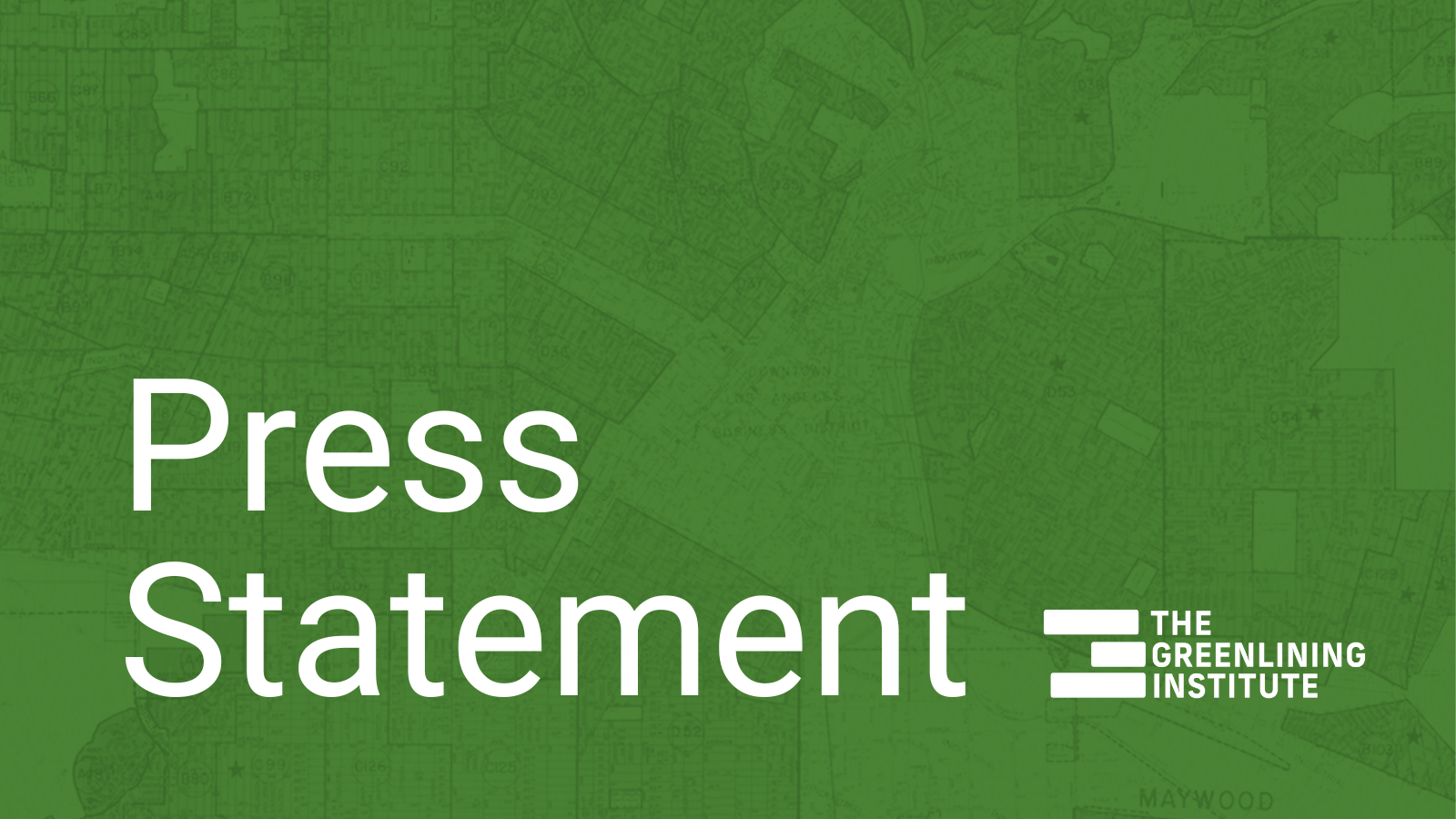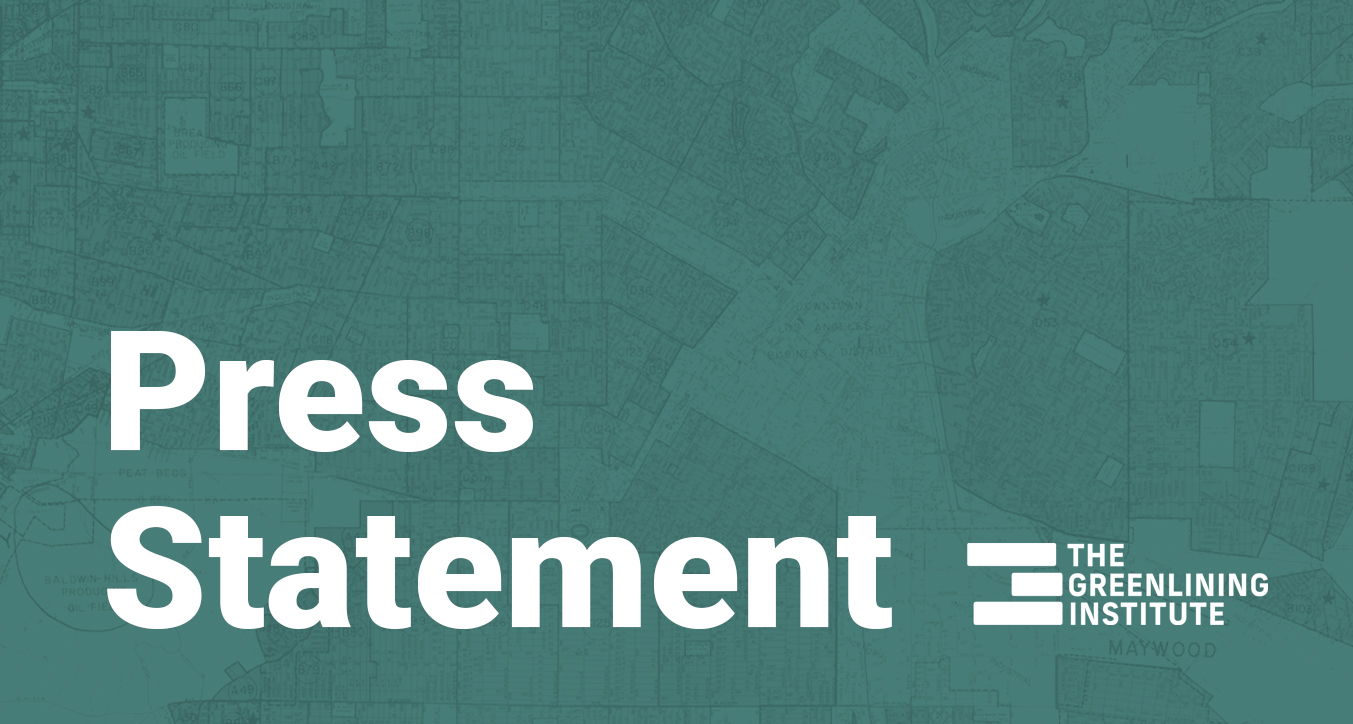Greenlining Statement on Trump’s Budget Bill: A Devastating Blow to Progress

Media Contact
Danielle Bell
Associate Director of Narrative Strategy
media@greenlining.org danielle.bell@greenlining.orgOn July 4, President Trump signed into law a nearly 1,000-page budget bill that makes clear just how far this country’s systems have drifted from the people they are supposed to serve.
With support from both houses of Congress, the President is using this bill to reshape the federal government in ways that concentrate wealth and power. The legislation prioritizes tax breaks for the wealthy, militarized attacks on immigrants, and expanded fossil fuel extraction and consumption — all while dismantling protections for consumers, the climate, public health, housing, and community well-being. These actions are designed to serve political power and profit, not shared prosperity.
This bill strips resources from working families, makes it easier for powerful interests to exploit everyday people, and tears down much of the equity infrastructure advocates have spent decades building in response to generations of systemic disinvestment, like redlining.
Undermining Consumer Protections
The bill slashes funding for the Consumer Financial Protection Bureau (CFPB), cutting its staff by 90% and halting 22 enforcement cases against institutions that have violated consumer protection laws. It also:
- Caps the CFPB’s funding, dramatically reducing its independence
- Reverses Biden-era rules that would have lowered overdraft and credit card late fees, costing consumers an estimated $18 billion annually
- Narrows the agency’s mission to mortgages, deprioritizing protections around student loans, medical debt, and digital payment platforms
These changes are a direct attack on working families’ livelihoods, and open the door for expanded predatory financial practices that disproportionately harm Black, Latino, immigrant, and low-income communities.
A Blow to Affordable Housing
While the bill modestly expands the Low-Income Housing Tax Credit (LIHTC), it simultaneously delivers a serious blow to long-term affordable housing development by:
- Eliminating tenant protection vouchers entirely by 2026
- Undermining housing developer certification pathways and critical support infrastructure
This will result in fewer homes, less protection for tenants, and more barriers for community-based affordable housing developers trying to serve their neighbors and improve their neighborhoods.
Rolling Back Climate Resilience
At a time when climate disasters are accelerating, especially in formerly redlined communities, this budget reverses progress by:
- Repealing the Greenhouse Gas Reduction Fund’s (GGRF) authorizing statute and clawing back unobligated funds
- Rescinding $100 million from the Green and Resilient Retrofit Program (GRRP), canceling funds meant to green and upgrade housing stock
- Repealing clean vehicle incentives and methane emissions fees
These rollbacks threaten both the environmental health of communities of color and the economic opportunities of transitioning to a green economy.
Draining Resources from Nonprofits and Community Infrastructure
By cutting public revenue and shifting priorities away from care and toward enforcement, the budget threatens the nonprofit sector, especially community-based organizations that serve as lifelines in communities that have faced decades of disinvestment. These organizations could experience:
- Reduced federal funding streams
- Greater demand with fewer tools to respond
- A chilling effect on advocacy and organizing efforts
This is not just about money — it’s about exercising control over who is allowed to shape solutions and serve their communities. In reality, the growing role of nonprofits reflects a response to government retreat, stepping in to protect and invest in communities where public systems have failed to do so.
What’s Next
This bill is a symptom of what marginalized people in America have always known: our system was never designed to work for everyone, ensuring we all can thrive — it was designed to work for those who hold the most power.
At Greenlining, we do not take this moment lightly. This moment calls for clear eyes and collective action. We are focused on rebuilding and reshaping new systems that are equitable, resilient, and just.
We remain grounded in the belief that solidarity and coordinated effort are essential to building systems that serve all people. A better future will not be handed down — it must be built alongside communities of color, low-income communities, and those long pushed to the margins.
As the federal government abandons its responsibilities, Greenlining will continue advancing systems change at every level — in neighborhoods, city halls, and state legislatures — to ensure our communities can draw down available resources and build resilience. We will work to defend hard-won gains, support communities through today’s challenges, and shape the policies we’ll need for tomorrow. By doubling down on our efforts in California and partnering across states, we’re laying the groundwork for a stronger, more equitable future.


